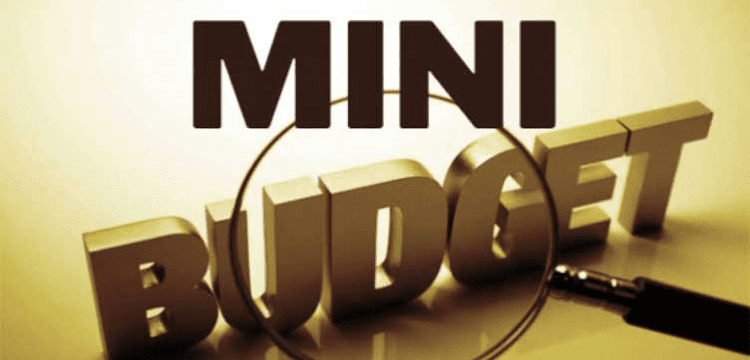[vc_row][vc_column][vc_column_text dp_text_size=”size-4″]Finance Minister Ishaq Dar presented the Finance (Supplemental) Bill 2023 — or the “mini-budget” — in the National Assembly and Senate on Wednesday, as the government strives to meet the preconditions for releasing the $1.1 billion IMF loan.
The government approved raising the Federal Excise Duty (FED) on cigarettes and raising the General Sales Tax GST rate from 17% to 18% last night in a last-ditch effort to appease the IMF and revive the bailout programme. This was done in order to raise an additional Rs115 billion out of the Rs170 billion Pakistan agreed to pay under the terms of the IMF.
The Pakistan Democratic Movement (PDM)-led administration hopes to minimise the budget deficit and increase tax revenue through the “mini-budget” in order to satisfy the requirements set forth by the Washington-based lender.
SENATOR MUHAMMAD ISHAQ DAR, Minister for Finance and Revenue,
introduced [The Finance
(Supplementary) Bill, 2023] in the House.The bill aimed to further amend certain laws relating to taxes and duties @MIshaqDar50
@FinMinistryPak pic.twitter.com/9PIErc7N0r— National Assembly 🇵🇰 (@NAofPakistan) February 15, 2023
The Standing Committee on Finance and Revenue will not receive the legislation from the National Assembly for further consideration; nevertheless, the Senate has submitted the legislation to the appropriate committee. After the meeting, Finmin Dar spoke with reporters and predicted that the bill would pass both houses by Monday or Tuesday because Senate Chairman Sadiq Sanjrani had “gave us until Friday.”
The IMF and Pakistan were unable to come to an agreement last week, and after 10 days of deliberations, a visiting IMF group left Islamabad with the promise that talks would continue. As it fights a searing economic crisis, the $350 billion economy is in desperate need of money.
The government attempted to implement the budgetary policy through an ordinance in an effort to placate the IMF, but President Dr. Arif Alvi recommended the administration to request the parliament’s approval instead. As part of the current agreement agreed upon in 2019 that expires on June 30, an agreement on the ninth review of the programme would release more than $1.1 billion of the $2.5 billion total still waiting. The money is essential for the economy, as its existing foreign exchange holdings merely cover imports for 18 days.
Protecting common people
FinMin Dar stated in his speech to the lower chamber of parliament that the “country is experiencing unprecedented difficulties” as a result of the “substandard” policies of the Pakistan Tehreek-e-Insaf (PTI) administration.
During the previous administration of the Pakistan Muslim League-Nawaz (PML-N), the nation experienced economic growth, with a $112 billion increase in the GDP. “Always striving to take on less loans, the PML-N During the PML-rule, N’s foreign investment also rose. The debts, however, reached record highs under the PTI administration, and the average person’s income also fell.”
In addition to addressing the “challenges that the present administration has due to PTI’s policies,” the finance czar continued, last year’s rains had also resulted in losses of more than $8 billion. He reaffirmed the PDM leaders’ mantra, “But we should always prefer the state before politics,” as they face a difficult task on the economic front.
The country’s economy, according to the finance minister, depends on reforms in the power sector. He claimed that the sector has been asked for change by international financial institutions. Senator Dar claimed that the IMF commitments made by the PTI-led administration have been kept by the PDM-led administration. “All of this is costing us politically dearly. We place importance on the state rather than politics.
The minister claimed that attempts are being made to implement taxes in a way that ordinary people don’t experience hardships. Dar informed the legislature that the government had set a goal of installing 75,000 solar tube wells and had authorised the import of tractors older than five years.
The senator predicted that Shehbaz Sharif, the prime minister, would soon reassure the country about the mini-budget. Additionally, he told the lawmakers that the cabinet and prime minister would be putting up a strategy to cut costs. The minister predicted that economic growth would initially be modest but eventually accelerate to 4%. Dar further stated that notice to open Letters of Credit (LCs) for goods related to sports, petroleum, and medical had been issued.
The minister predicted that the Rs170 billion revenue goal will be reached. The politician claimed that the government has already announced a Rs2,000 billion package for farmers, of which Rs1,000 billion has already been delivered, when speaking about measures for farmers and the agricultural industry. Dar stated that “farmers will be provided low-interest loans for agricultural equipment and Rs30 billion will be granted for fertilisers.” He added that the government has set aside Rs. 30 billion for loans to young people.
[/vc_column_text][/vc_column][/vc_row]











